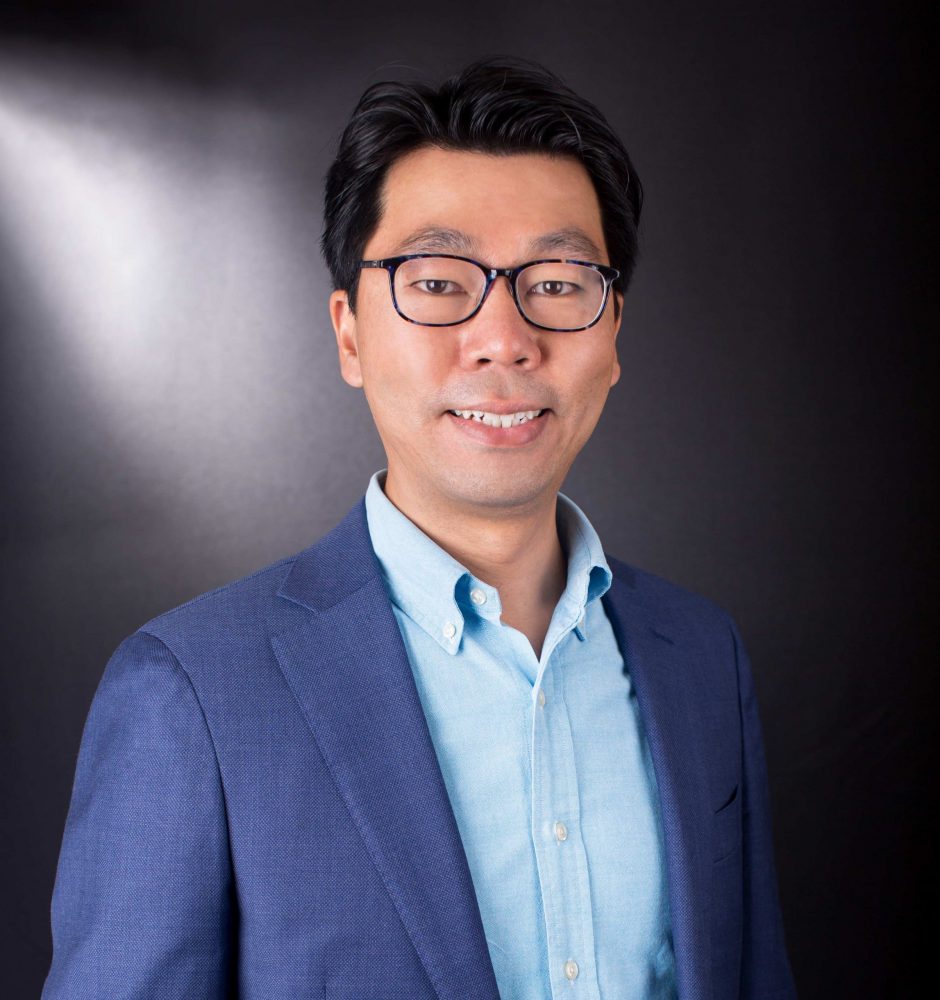第七屆「香港大學中國經濟季度論壇」系列活動近日舉行。港大經管學院副院長及亞洲環球研究所總監鄧希煒發表題為《地緣政治下的亞洲經濟新格局》的主題演講。鄧希煒認為,未來十年的“全球化”,各國經濟交流將更加碎片化、數位化、區域化,世界向多極過渡。全新的「全球化」可能是沒有美國參與的。

3917 0029
3917 4388
MB 335/ KK 920
- PhD: MIT
- Bachelor: UCLA
Heiwai Tang is Victor and William Fung Professor in Economics, Director of the Asia Global Institute and HKU APEC Study Center, as well as the Hong Kong Institute of Economics and Business Strategy at the University of Hong Kong (HKU). Prior to joining HKU, he was tenured Associate Professor of International Economics at the School of Advanced International Studies (SAIS) of Johns Hopkins University. He is also affiliated with the Federal Reserve Bank of Dallas (U.S.), the Center of Economic Studies and Ifo Institute (CESIfo, Germany), the Kiel Institute for the World Economy (Germany) and the Globalization and Economic Policy Center (U.K.) as a research fellow. He has been a consultant to the World Bank, the International Finance Corporation, the United Nations, and the Asian Development Bank; and held visiting positions at the IMF, Stanford, MIT, Harvard. He is currently an associate editor of the Journal of International Economics, the Journal of Comparative Economics and the China Economic Review. Since 2021, he has served on a number of public bodies, including the Currency Board Sub-Committee of the HKMA’s Exchange Fund Advisory Committee and the Minimum Wage Commission in Hong Kong.
Heiwai holds a Ph.D. in economics from MIT and a Bachelor of Science in mathematics from UCLA. His research interests span a wide range of theoretical and empirical topics in international trade, with a specific focus on production networks, global value chains, and China. His research has been published in leading journals in economics, including American Economic Review and Journal of International Economics. His research and opinions have been covered by BBC, Financial Times, New York Times, Al Jazeera, Foreign Policy, South China Morning Post, and various think tanks such as the Brookings Institution and the Peterson Institute for International Economics.
Columbia-LBS-HKU EMBA: The New World Order
HKU-PKU DBA: Frontiers in Economics Research
Fudan-HKU IMBA: The New World Order
HKU: Undergraduate Common Core – China in the Global Economy; MBA – Global Economy; Master of Economics – Economic Policy
International Trade, Global Value Chains, Development Economics
- “Trade Networks and Firm Value: Evidence from the US-China Trade War,” Journal of International Economics, forthcoming. (with Yi Huang, Chen Lin, and Sibo Liu)
- “Currency Carry Trade by Trucks: The Curious Case of China’s Massive Imports from Itself”, Review of Finance, 27(2), March 2023, pp. 469–493. (with Xuepeng Liu, Zhi Wang, and Shang-Jin Wei)
- “Do Multinationals Transfer Culture? Evidence on Female Employment in China”, Journal of International Economics, 133, Nov 2021, 103518. (with Yifan Zhang)
- “Domestic Segment of Global Value Chains in China under State Capitalism”, Journal of Comparative Economics, 48(4), Dec 2020, pp. 797-821. (with Fei Wang and Zhi Wang)
- “Why is China Investing in Africa? Evidence from the Firm Level”, World Bank Economic Review, 32(3), Oct 2018, pp. 610-632. (with Wenjie Chen and David Dollar)
- “Are Foreign Firms Favored in China? Firm-level Evidence on the Collection of Value-Added Tax”, Journal of International Business Policy, 1(2), Inaugural Issue, Jun 2018, pp. 71-91. (with Yasheng Huang)
- “Domestic Value Added in Exports: Theory and Firm Evidence from China”, American Economic Review, 106(6), Jun 2016, pp. 1402-1436. (with Hiau Looi Kee)
- “Learning to Export from Neighbors”, Journal of International Economics, 94(1), Sep 2014, pp. 67-84. (with Ana Fernandes)
- “Factor Intensity, Product Switching, and Productivity: Evidence from Chinese Exporters”, Journal of International Economics, 92(2), Mar 2014, pp. 349-362. (with Yue Ma and Yifan Zhang)
- “International Politics and Import Diversification”, Journal of Law and Economics, 56(4), Nov 2013, pp. 1091-1121. (with Sergey Mityakov and Kevin Tsui)
- “Determinants of Vertical Integration in Export Processing: Theory and Evidence from China”, Journal of Development Economics, 99(2), Nov 2012, pp. 396-414. (with Ana Fernandes)
- “Labor Market Institutions, Firm-specific Skills, and Trade Patterns”, Journal of International Economics, 87(2), Jul 2012, pp. 337-351.
- APEC Study Center Financial Support from the HKSAR Government, PI, HKD 2,500,000, 2022-2027
- HKU Knowledge Exchange Grant, PI, HKD 497,000, 2023
- Hong Kong RGC Grant, Co-PI, HKD 418,975, 2022-2024
- Committee of 100 Next Generation Leader, 2018
- Richard Paul Richman Center for Business, Law, and Public Policy Grant, Columbia University, Co-PI, USD 14,500.
- Social Sciences and Humanities Research Council (SSHRC) of Canada Insight Grant, Co-Investigator, CAD 78,736
- Student-Elected Best Professor of the Master of International Econ and Finance Program, JHU SAIS, 2016-2017
- Alcoa Foundation Grant, Co-PI, USD 500,000, 2016-2019
- Hong Kong RGC Grant, Co-PI, HKD 364,378, 2017-2019
- Outstanding Referee Journal of International Economics, 2014-2017.
- Hong Kong RGC Grant, Co-PI, HKD 336,462, 2011-2013
- The Nuffield Foundation Social Science Grant, SGS/36581, Co-PI, £12,000, 2009-2011
- MIT Presidential Fellowship, 2002-2003
- Securities and Futures Appeals Tribunal of the HKSAR government, member, 2023 –
- Panel of Arbitrators of the Labour Relations Ordinance, HKSAR, member, 2023 –
- Insurance Authority in Hong Kong SAR, Member of the Industry Advisory Committee, 2022 –
- Telecommunications Appeal Board of the HKSAR Government, Member, 2022 –
- Currency Board Sub-Committee of the HKMA Exchange Fund Advisory Committee, Member, 2021-
- Minimum Wage Commission in Hong Kong SAR, Member, 2021 –
- Pacific Economic Review, Managing Editor, 2022 –
- Journal of International Economics, Associate Editor, 2019 – 2022
- China Economic Review, Associate Editor, 2018 –
- Journal of Comparative Economics, Associate Editor, 2017 – 2023
- China Economics Summer Institute, Academic Committee Member, 2017 –
- International Finance Corporation (IFC), Consultant, 2017 –
- United Nations Industrial Development Organization, Consultant, 2016 – 2017
- Asian Development Bank, Consultant, 2016 – 2017
- IMF, Research Department, Visiting Scholar, 2015 – 2016
- World Bank, Consultant, 2013 – 2017
第二次世界大戰後,倫敦經歷了從全球貿易港口到離岸金融中心的深刻轉型。1964年,倫敦位居歐洲三大港口之一,處理貨物量高達6130萬噸;但至1980年代,隨着大型遠洋船舶和集裝箱技術的普及,當地封閉式碼頭在地理與設施上均難以適應新型貨運需求,貨物處理量大降至2500萬噸,倫敦港口因而失落領導地位。
港大經管學院副院長及亞洲環球研究所總監鄧希煒教授撰文指出,現時香港經濟結構單一,推動「新型工業」可促進多元化經濟發展。而為了監測產業發展的最新動態,協助政府制定產業政策和檢視政策成效,鄧教授提出一套量度香港工業經濟貢獻的新方法。 根據研究所得,鄧教授相信新型工業對香港本地生產總值的貢獻存在廣闊的增長空間,隨着香港創新科技的加速發展,2000-2023年間,「研發、設計、測試及環境工程」的增加價值從33億港元增至133億港元; 同時,「電腦編程、數據及工業互聯網服務」的增加價值則從50億港元增至255億港元。 此外鄧教授亦提到,香港作為全球供應鏈的重要一環,與新型工業同樣重要的相關生產性服務業,如物流、法律服務等,不但支援本地工業的發展,更推動全球工業的發展,對香港的經濟發展和貢獻不容忽視。
鄧希煒教授:特朗普關稅政策對中國而言,短期壓力雖大,但長期通過產業鏈韌性建設、內需市場挖掘和理性出海,中國經濟仍具備較強的抗風險能力。
歷經7年談判,全球規模最大的自由貿易協定——《區域全面經濟夥伴關係協定》(RCEP)於2022年1月1日正式生效,成員國共佔世界人口近30%以及全球GDP超過三分之一。在全球經濟碎片化持續加劇之際,RCEP被寄予厚望。這項協定匯聚了亞太地區規模懸殊、制度各異的多元國家,展現出區域包容性合作的強大潛力與韌性。 實施至今3年以來,RCEP對亞太地區的貿易格局產生了哪些影響?又將如何重塑成員國之間的貿易模式?本文將根據香港大學亞洲環球研究所團隊建立的「RCEP Tracker」【註】,比較分析2020年首季至2024年第三季各RCEP成員的貿易表現
港大經管學院副院長及亞洲環球研究所總監鄧希煒教授最近在CNA上發表了演講。他分享了對美中貿易戰演變的分析,以及這些變化對香港、大灣區、中國內地及其他地區企業的影響。 鄧希煒教授談到了最新關稅的影響: 大灣區:廣東省作為高科技製造的中心,對貿易衝擊的韌性較其他中國地區更強,這主要得益於相對較高的利潤率。 內需增長:中國的私人消費占名義GDP的比例低於40%。中國需要提升內部消費,這是經濟穩定的重要驅動力,以抵禦外部壓力。 多邊主義:儘管美中緊張局勢上升及地緣政治壓力促使中國多元化合作夥伴,中國仍然堅持多邊開放的貿易體系。 香港:美元對非人民幣貨幣的貶值可能吸引更多遊客,並促進本地消費。
在《南華早報》SCMP論壇“重新定義香港系列2025”上,港大經管學院副院長及亞洲環球研究所總監鄧希煒教授強調,香港的債務對GDP比率顯著低於新加坡、日本和美國等其他發達經濟體。這為政府主動利用政府擔保的債券來投資新的增長驅動力留下了很大的空間,因為歷史上對大型基建項目的投資回報率是正面的。 在新加坡《海峽時報》發表的一篇相關文章中,鄧教授分享了有關升級香港經濟部門的見解,這些見解與前述觀點一致。鄧教授表示:“香港的高排名和全球認可的大學擁有大量優秀的基礎科學和學術研究,這些研究應該具有一定的商業價值,需要被實現。” 他還強調了促進香港與大灣區其他城市之間更好協同的重要性。通過這些努力,香港可以解鎖新的機遇,鞏固這座城市作為不僅僅是金融中心的角色。
港大經管學院副院長及亞洲環球研究所總監鄧希煒教授在接受《南華早報》和《信報》訪問時分享了對財政預算的看法。他強調,政府正採取「保守的做法」來應對赤字,建議在2025-26財政年度減少2%的經常性開支,並在接下來的兩年內持續進行類似的削減。他認為,為了解決結構性赤字,特別是政府提高收入以應對開支不斷上升的能力仍未明朗,可能需要將削減開支的幅度提升至3%。 對於香港未來5年債務佔GDP比率最高16.5%,鄧教授形容為「完全安全」水平。至於人民幣債券,對於需要及持有人民幣的機構例如國企則有吸引力,雖然內地經濟遇壓力,但國企有資金流動性,年期為3至5年較合適。 鄧教授亦強調,針對機構投資者發債成本較低。隨著目前股市表現良好,零售投資者對債券的收益要求至少在4%至4.5%之間。因此,他建議應最大化機構市場的參與,因為3.5%的收益仍然具有吸引力。





